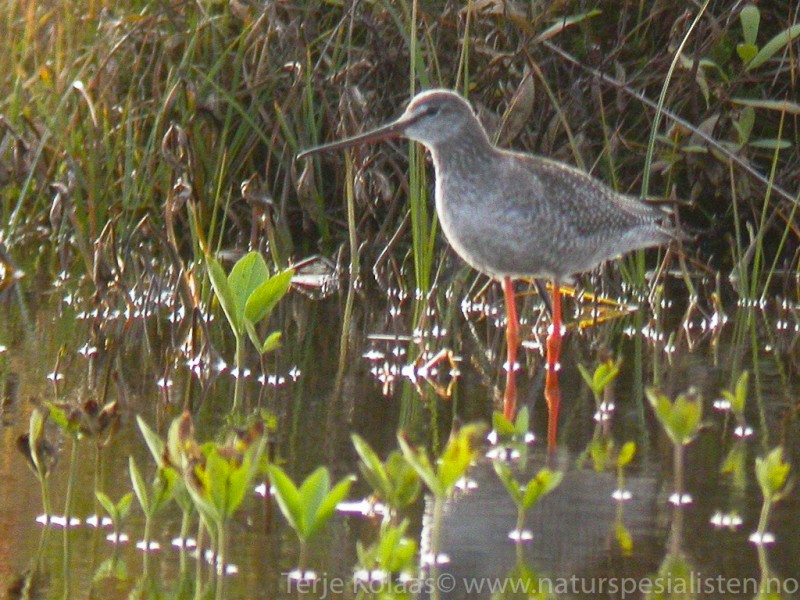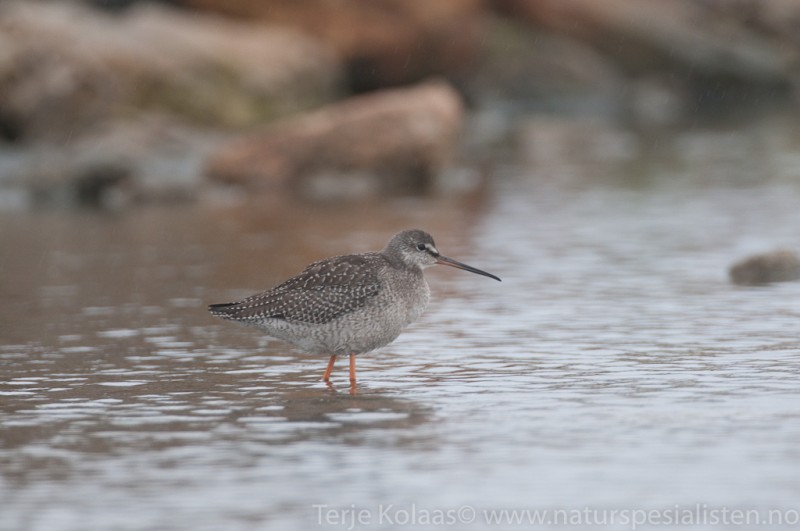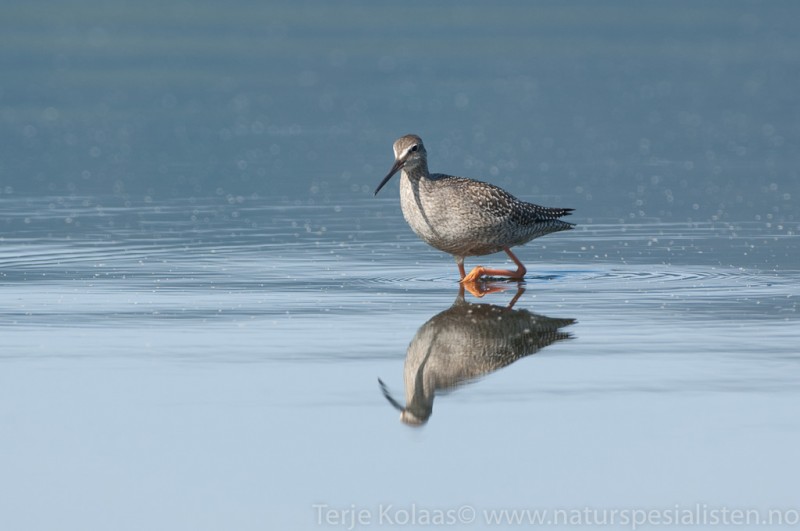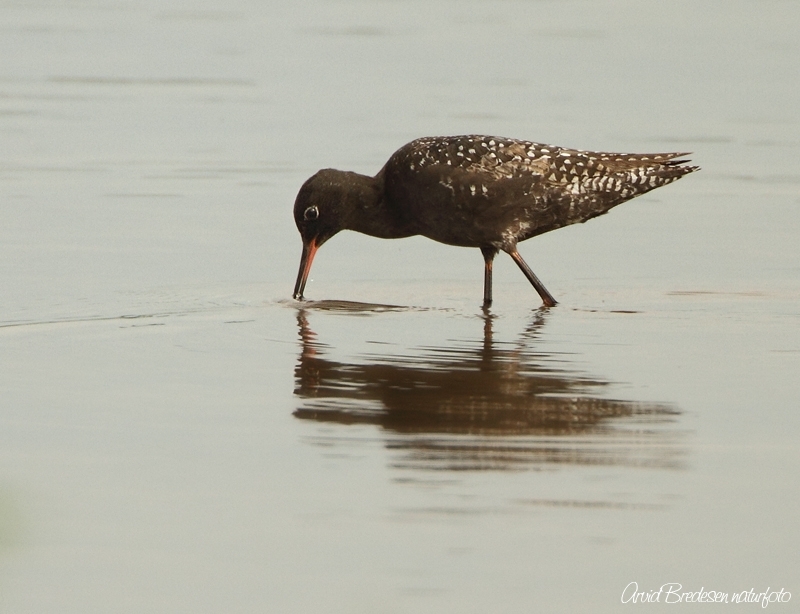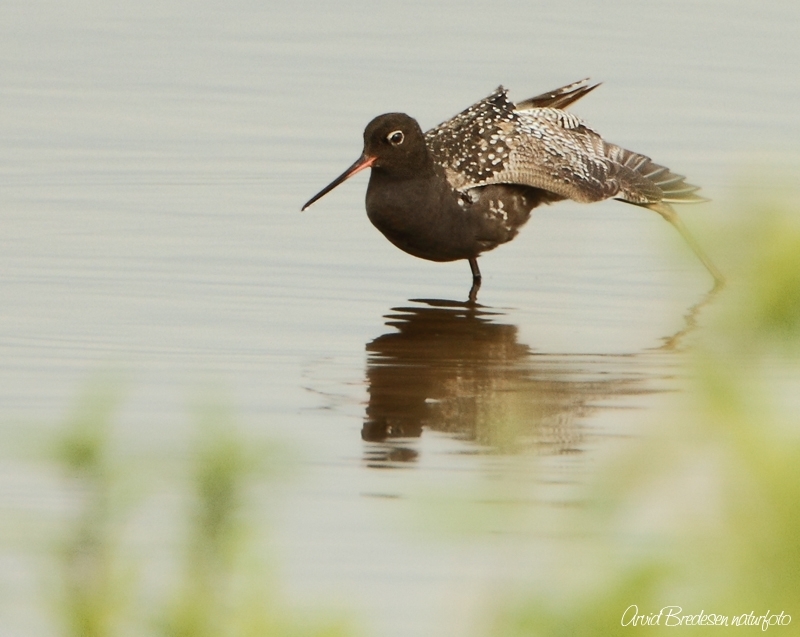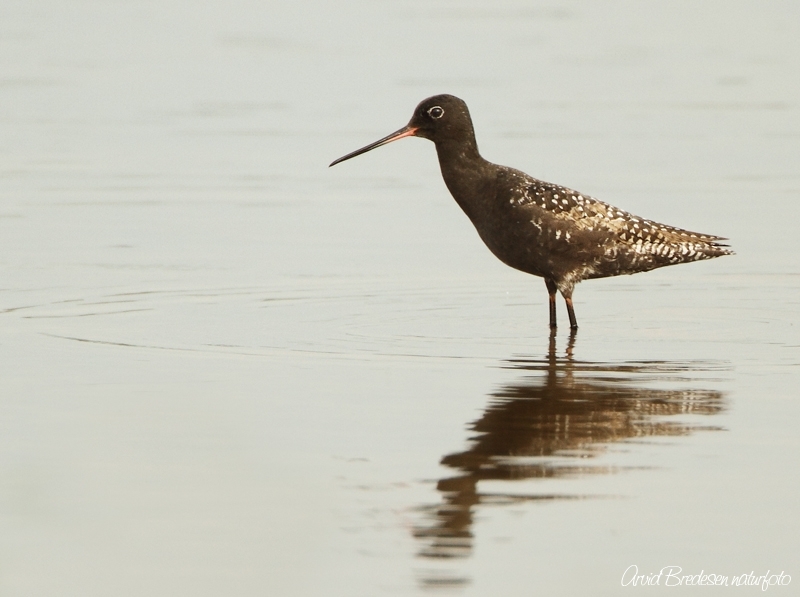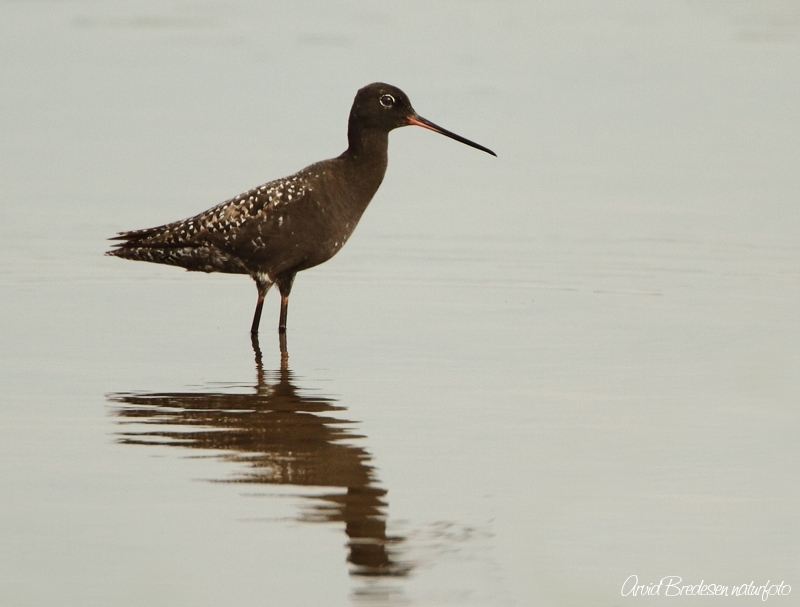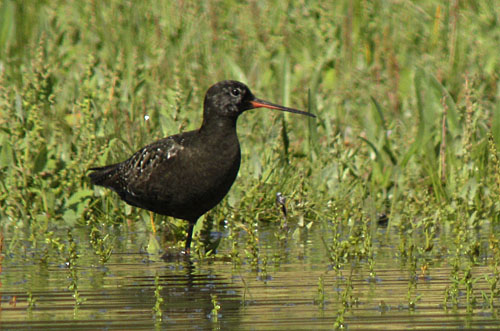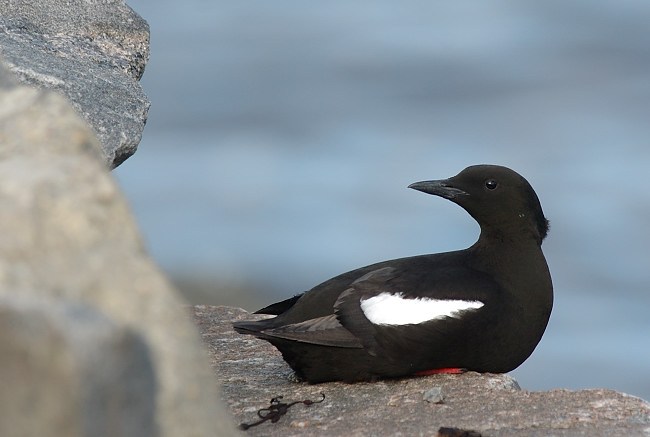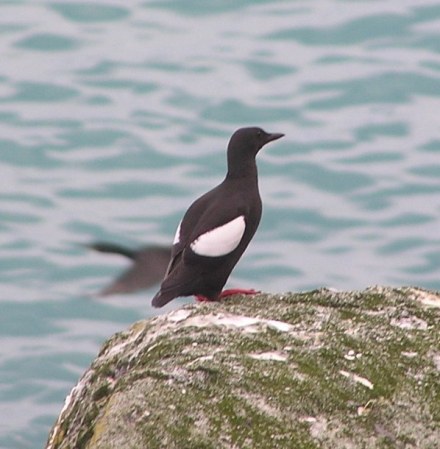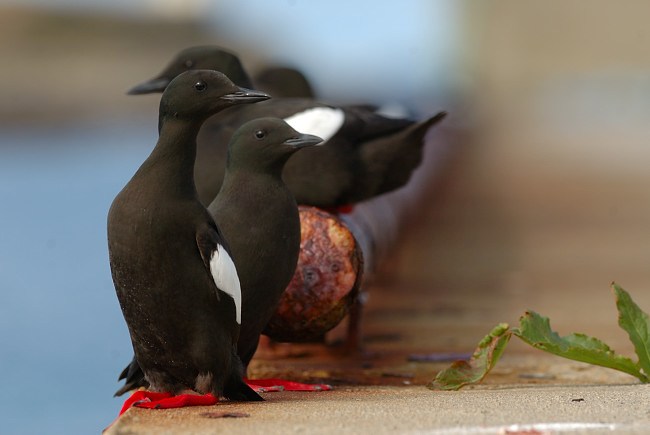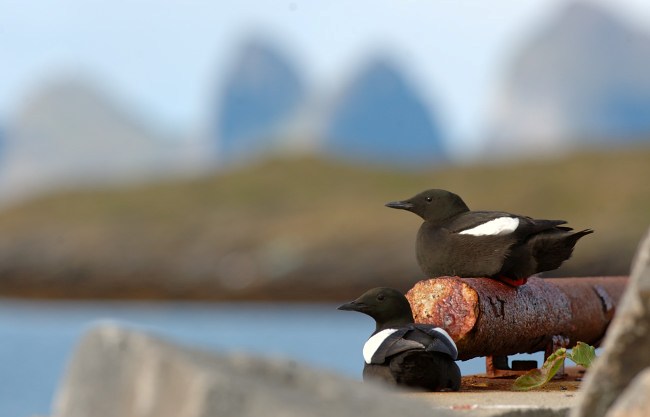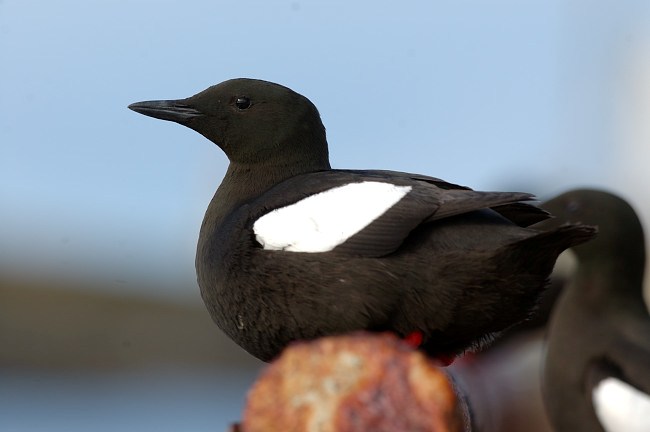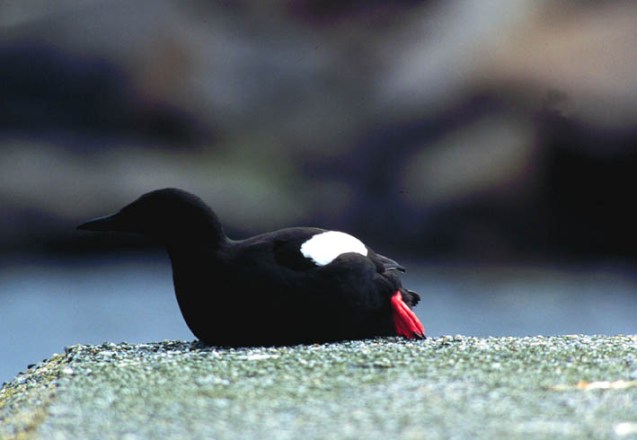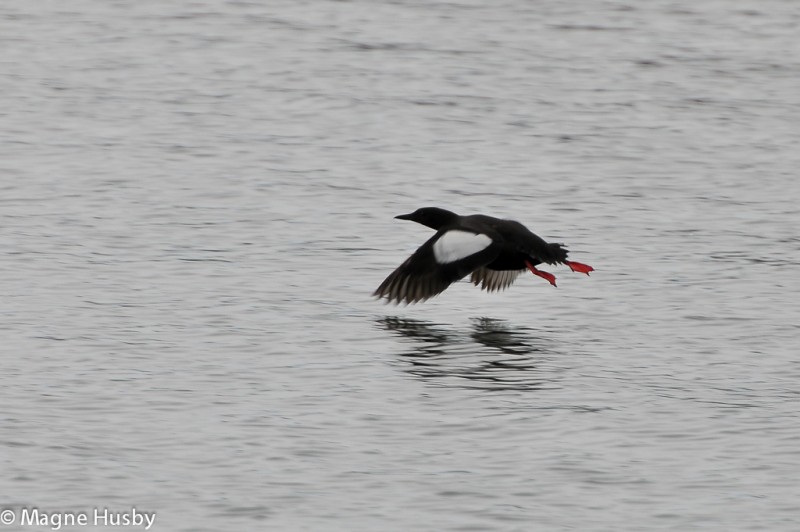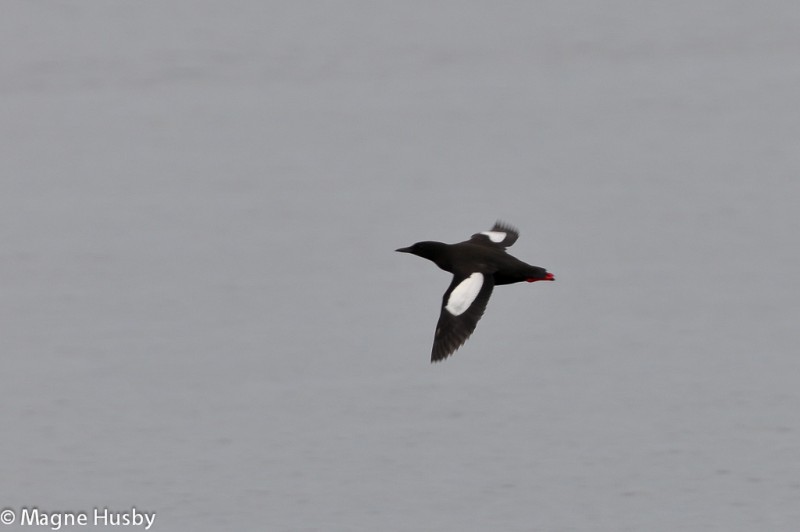Spotted Redshank (Tringa erythropus)
Black Guillemot (Cepphus grylle)
Unmistakable in breeding plumage, with all dark/blackish body unique among Tringas. Most birds seen in Europe will probably be in winter- or juvenile plumage, and can then be mistaken for Redshanks. Spotted Redshanks are slimmer, longer legged and more elegant than Redshanks. The supercilium is much more prominent, the bill is slimmer and longer. Most diagnostic is the lack of white wing-bars, and the white sigar-shaped patch on the back. The barring in juveniles reaches from the belly and all the way back to the vent. Often feeds in deeper water than Redshanks, even by swimming and upending.
Sound:Flight call loud and diagnostic, and is often the first sign of the species' presence; a sharp and short, disyllabic "koo-eett", with the first syllable falling in pitch and the second rising sharply. Display call a squeaky, but melodic "krroo-lee-ooo" repeated in cycles. Alarm call a falcon-like "ke-ke-ke-ke".
Flight calll, song:
Distribution:
Xeno-canto: map
Ecology:Birdlife ecology
Links:
Observation.org Latest observations
Image search Flickr NB! May give other species
CCSounds:Recorded by Stein Ø. Nilsen,http://www.xeno-canto.org ,CC license
Unmistakable in summer with almost all black plumage. White oval wing-patches in all plumages. Only auk with white wing-panels. Bill quite slender and pointed, body and wings rounded. Winter plumage blotched in grey and white, with dark wings (with white coverts). Typically scans for food by frequently dipping forehead in the water.
Sound:Call surprisingly high pitched. Quite pure, drawn out, plaintive whistling notes in same pitch range as Hazel Grouse.
Contact call:
Distribution:
Wikipedia: map (se also Xeno-canto below)
Ecology:Birdlife ecology
Links:
Observation.org Latest observations
Image search Flickr NB! May give other species
CCSounds:Recorded by David Farrow. http://www.xeno-canto.org .CC license

 English
English Albanian
Albanian
 Armenian
Armenian
 Bulgarian
Bulgarian
 Catalan
Catalan
 Croatian
Croatian
 Czech
Czech
 Danish
Danish
 Dutch
Dutch
 Finnish
Finnish
 French
French
 Georgian
Georgian
 German
German
 Greek
Greek
 Hungarian
Hungarian
 Italian
Italian
 Latvian
Latvian
 Lithuanian
Lithuanian
 Macedonian
Macedonian
 Norwegian
Norwegian
 Polish
Polish
 Portuguese
Portuguese
 Romanian
Romanian
 Russian
Russian
 Sami : Lule sami
Sami : Lule sami
 Sami : North sami
Sami : North sami
 Sami : South sami
Sami : South sami
 Scientific names
Scientific names
 Serbian
Serbian
 Spanish
Spanish
 Swedish
Swedish
 Ukrainian
Ukrainian


